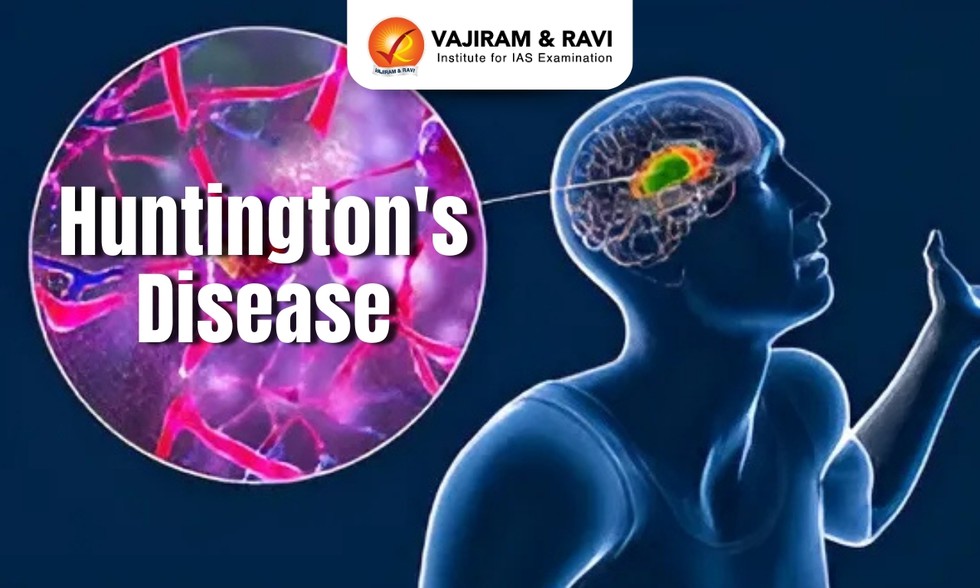About Huntington's Disease:
- It is a genetic condition that affects the cells in your brain.
- It is an inherited condition that causes brain cells to slowly lose function and die.
- If one of your parents has HD, you have a 50% chance of also developing it.
- It affects the cells in parts of your brain that regulate voluntary movement and memory.
- What causes Huntington’s disease?
- A genetic mutation of the HTT gene causes Huntington’s disease.
- The HTT gene makes a protein called huntingtin. This protein helps your nerve cells (neurons) function.
- If you have HD, your DNA doesn’t have all the information needed to make the huntingtin protein.
- As a result, these proteins grow in an abnormal shape and destroy (instead of help) your neurons.
- Your neurons die because of this genetic mutation.
- The destruction of nerve cells happens in the basal ganglia, or the region of your brain that regulates your body’s movements.
- It also affects the brain cortex (surface of your brain) that regulates your thinking, decision-making, and memory.
- How common is HD?
- Huntington’s disease affects an estimated 3 to 7 out of every 100,000 people, most often people of European ancestry (biological family comes from European descent).
- Symptoms:
- Common symptoms include uncontrollable dance-like movements (chorea) and abnormal body postures, as well as problems with behavior, emotion, thinking, and personality.
- Other symptoms may include tremor (unintentional back-and-forth movement in the person’s muscles) and unusual eye movements. The eye movements can happen early in the disease.
- These symptoms get worse over time.
- As HD progresses, you will need constant assistance and supervision because of the debilitating nature of the disease.
- People usually die from the disease within 15 to 20 years of developing symptoms.
- Treatment:
- There is no treatment that can stop or reverse HD, but health care providers can offer medications to help with certain symptoms.
